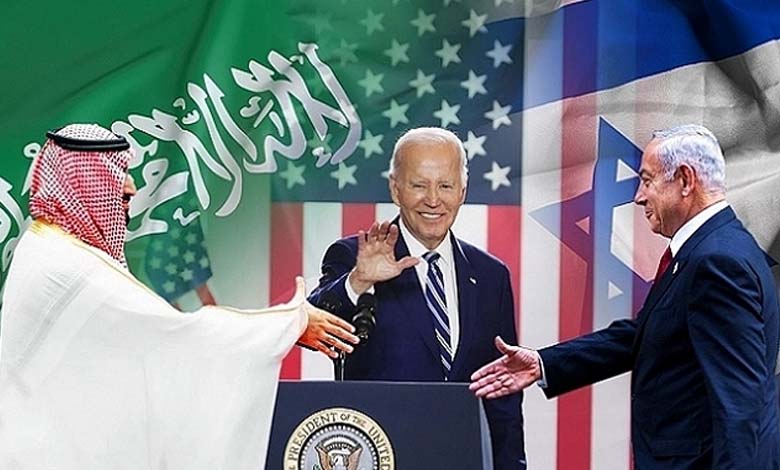Washington seeks to revive the normalization deal between Saudi Arabia and Israel
The U.S. Energy Envoy says in the UAE that the conflict between Hamas and Israel should serve as a motivation for achieving peace in the region as an alternative

The United States is working to revive normalization efforts with Saudi Arabia despite the war in Gaza casting its shadow over the entire region, and despite Riyadh temporarily closing this file with a significant number of Palestinian casualties.
The U.S. Energy Envoy, Amos Hochstein, said on Thursday in the UAE that he does not believe hope should be abandoned regarding the normalization of relations between Saudi Arabia and Israel, and that it remains a goal for the United States despite the ongoing war in Gaza. Informed sources revealed two months ago that Saudi Arabia had frozen U.S.-backed plans to normalize relations with Israel amid escalating conflict between the armed wing of the Islamic Resistance Movement (Hamas) and Israeli forces.
Israel launched a military campaign in response to the surprise attack by Hamas fighters on October 7th, resulting in the death of 1,200 people and the capture of 240 hostages, according to Israeli statistics. The Gaza Health Ministry reports that more than 16,000 people have been killed so far in the territory with a population of 2.3 million.
Until October 7th, Israeli and Saudi leaders claimed they were making steady progress toward an agreement that could reshape the Middle East. Both Saudi Crown Prince Mohammed bin Salman and Israeli Prime Minister Benjamin Netanyahu stated in statements made before the Storm Al-Aqsa operation that the two countries were on the verge of establishing official relations.
The conflict between Israel and Hamas threatens to increase anti-Israeli sentiments in Saudi Arabia, which had made significant progress in ongoing negotiations for months to achieve historic normalization with Israel under U.S. sponsorship.
The October 7th operation came just days after two Israeli ministers visited Riyadh to participate in international conferences, marking the first two public visits to the kingdom. A few weeks before that, Israeli players competed in an electronic football competition in the Saudi capital.
Hochstein, speaking on the sidelines of an event in the UAE, said, “I think not every road is a straight road, and sometimes it goes in different directions first. But the goal remains the same.” He added, “We remain committed to the goal of regional integration, and it is not only about Saudi Arabia and Israel, but it should be much broader than that.”
He continued, “I do not think we are changing our directions, and I do not think this conflict should. In fact, this conflict should serve as a reminder that if we do not move towards regional integration, peace, and security – that is the alternative.”
The United States, along with its ally Israel, opposes a ceasefire in Gaza because they believe it will only benefit Hamas. Instead, Washington supports a temporary truce to protect civilians and allow for the release of hostages held by Hamas in the October 7th attack.
Since the “Abraham Accords” in 2020, sponsored by the United States, between Israel and the United Arab Emirates, Bahrain, Sudan, and Morocco, speculation has been ongoing about Saudi Arabia joining the group of normalized countries. Saudi Arabia, which holds a significant symbolic position in the Islamic world, has always emphasized that achieving this depends on implementing the two-state solution with the Palestinians and a fair settlement of the refugee issue. Saudi Crown Prince referred to the importance of the Palestinian issue for the Kingdom in an interview with “Fox News” last month.
He expressed hope that negotiations with Israel would “lead to a result that makes life easier for the Palestinians and allows Israel to play a role in the Middle East.”
On the normalization negotiations agenda, there are Saudi demands for security guarantees from the United States and assistance in developing a civilian nuclear program.












